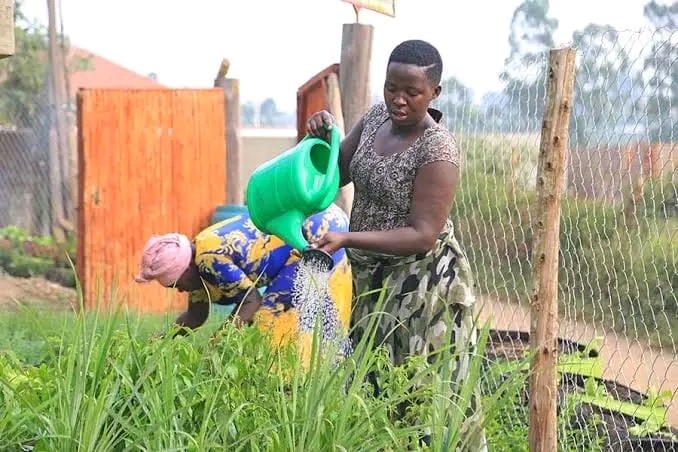Gender equality in agriculture a key to better nutrition
Some evidence suggests that women’s control over land, cash, assets, and chance in decision making reduces the prevalence of child malnutrition.

Fort Portal: Gender Equality and women’s Empowerment are central to achieve food security for all by raising levels of nutrition and improving agriculture productivity.
Some evidence suggests that women’s control over land, cash, assets, and chance in decision making reduces the prevalence of child malnutrition.
According to Brian Kisembo the head of nutrition committees in Kabarole district proves that access to nutritious, diverse diets and increased expenditure on health and nutrition may be more likely to be achieved and sustained if women are empowered.
Kisembo expressed that achieving gender equality and women’s empowerment in food systems can result to better food security and nutrition but women’s contribution remains undervalued, unpaid and over looked in food systems research.
“Women are producers, workers, processors, customers and traders. In spite of this, they face many challenges and limitations as social and cultural barriers to access and adopt agricultural information, opportunities and resource” expressed Kisembo.
Worldwide, the gender gap in food insecurity continued to rise in 2021 by 31.9% of women being moderately or severely food insecure compared to 27.6% of men. In Uganda, its estimated that 77% of females are engaged in agricultural work compared to 67% of men.
Effects of gender inequality
Owek. Harriet Nyakake the deputy prime minister in Tooro Kingdom says that gender-based inequalities with in agriculture may limit the sector’s potential to provide nutritious diets and improve nutrition outcomes where by in low-income village settings, women have lower ownership and use of land compared to men.
“Agriculture is highly gendered in all communities where by women make up a large percentage of the agricultural labor force yet are the disadvantaged in productive asset ownership and control of productive inputs” says Nyakake.
Dr. Stephen Kalyegera the district health officer Kabarole explains the need to empower women with more control over resources, so that nutrition within household improves automatically compared with their counterparts who are less empowered.t
“When it comes to household nutrition, mothers’ matter because the more control a woman has over her own time, the more likely she is to spend on procuring special foods for her family and taking proper care of children” states Dr. Kalyegera.
Dr. Bernard Bwambale a nutritionist from CONSCENT emphasizes that nutrition and gender are not stand-alone since women are main drivers of agriculture sector
“Women are the nexus of the agriculture, health and nutrition sectors and to improve what is being eaten and cooked, they need to be brought on board in order to navigate the high rates of stuntedness in Tooro region at 38% with a small drop from 42% which is still worrying” Dr. Bwambale says.
Addressing the inequalities
Rev. Sarah Kakyo head of nutrition projects in Rwenzori diocese advised civil society organizations and technical personnel not to only sit in hotel meetings and het transport refunds but also empower the lower council leaders, mothers at grassroot level since there is a big information flow gap about nutrition and diet.
“To close the gap of inequality is about changing minds by transforming educational opportunities and trainings for women, and without attending to existing challenges that women face due to gendered social norms, scaling up female -led agriculture and productivity will remain limited in scope” Advises Rev. Kakyo.
Dr. Bwambale explains that an equality focused approach to food system that deliver healthy diets would be an ideal to consider actions that seek to reduce inequalities in the immediate conditions in which people are born, live, and work thus directly addressing food availability, accessibility and price in local food environment.
“The need for Policy makersto create strong regulatory and fiscal frameworks that provide guidance to those who produce the diets from our food systems” explains Dr. Bwambale
“Development of policies and investments to diversify food production away from the staple food cereals and towards to non staple crop production improves value chains to increase incomes of small-scale farmers’ expresses Dr. Bwambale.
Do you have an advertisement or article you want to publish? Mail us at theugreports@gmail.com or WhatsApp +256394700683.






